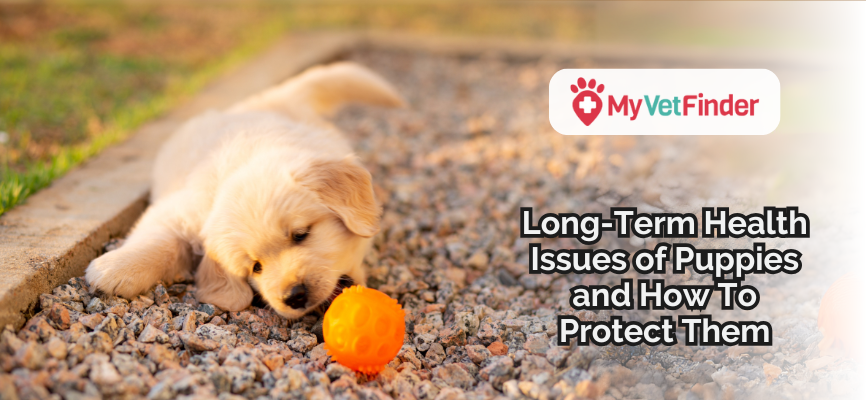
Best Vitamins For Dogs And Puppies

For the body to function effectively, trace amounts of organic molecules referred to as vitamins are required. They are essential nutrients that are necessary for a variety of physiological processes. There are 13 essential vitamins, which can be divided into two categories based on how they are processed by the body: fat-soluble vitamins (A, D, E, and K), which are stored in fat tissues; and water-soluble vitamins (vitamin C and the eight B-vitamins), which are not processed by the body and must be replenished on a regular basis through diet or supplements. Each vitamin has a special function and offers benefits to human and canine health.
What are Dog Vitamins?
Dog vitamins are dietary supplements designed particularly to address the vitamin needs of dogs. These supplements supply extra vitamins that a dog's diet could be missing, supporting their general health and well-being. The vital vitamins A, D, E, and B-complex, which support the immune system, bone health, skin and coat health, and energy metabolism, are frequently combined in dog vitamins. Before giving your dog any vitamin supplements, it's crucial to speak with a veterinarian to be sure they are suitable and secure for your pet's unique needs.
How Will it Help to Maintain Good Health in Dogs?
Vitamins contribute to maintaining good health in dogs by providing essential nutrients, supporting the immune system, promoting healthy skin and coat, strengthening bones and joints, aiding in energy metabolism, and ensuring proper nerve function. Consulting a veterinarian is crucial to determine the right vitamins and dosage for your dog's specific requirements, as excessive supplementation can be harmful.
Why is it Essential to Give Vitamins to Dogs?
Dogs should receive vitamins since they are essential to preserving their general health and well-being. Numerous body processes are supported by vitamins, including immune system support, skin and coat health promotion, appropriate bone growth, energy metabolism, and nerve function assurance. By addressing dietary deficits and supporting the unique nutrient requirements of dogs, vitamin administration improves health outcomes. In this article, we will be discussing different types of dog medicine, appetite for dogs, best dog vitamins, and lastly puppy vitamins
What are the Types of Dog Vitamins?
According to Care First Animal Hospital here are the types of Vitamins that are needed for Dogs
-
The benefits of vitamin A include support for the immune system, growth, and eye health.
-
Energy, metabolism, and brain growth and function are all facilitated by vitamin B.
-
Vitamin D: development of bones and muscles Anti-inflammatory and brain-boosting
-
Effects of vitamin C antioxidant qualities, support for the metabolism, and puppy development
-
Blood coagulation is regulated by vitamin K.
-
Liver and brain health thanks to choline.
Vitamin C for Dogs
Vitamin C is actually great for canines, especially if the dog or puppy needs a boost of this vitamin. A crucial ingredient that promotes dogs' general health and well-being is vitamin C. Although canines are capable of producing their own vitamin C, some circumstances, such as times of stress, illness, or recuperation after surgery, may benefit from supplementation. Vitamin C functions as an antioxidant strengthens the immune system, promotes the creation of collagen, and aids in cell protection. However, it's crucial to work with a doctor to figure out the right quantity for your dog's individual requirements because too much vitamin C supplementation can cause digestive problems.
Applicable Dog Vitamins for Appetite
Certain vitamins have been shown to indirectly boost canine appetite by improving general health and well-being. These vitamins include the B vitamins, which aid with energy metabolism and can increase a dog's general vigor and appetite. B-vitamins include thiamine, riboflavin, and niacin. In rare circumstances, vitamin B12 might also aid in increasing appetite. Your dog may have underlying health issues that need to be addressed, therefore it's crucial to visit a veterinarian to establish the best course of action.
Best Dog Vitamins for Dogs
Determining the best dog vitamins depends on the specific needs and health conditions of your dog. It is always recommended to consult with a veterinarian for personalized advice. However, some commonly recommended dog vitamins include a well-balanced multivitamin that covers essential vitamins and minerals, omega-3 fatty acids for coat and joint health, and probiotics for gut health. The best dog vitamins are those that are suitable for your dog's age, breed, size, and individual health requirements.
Puppy Vitamins
Puppies' nutritional needs are met by puppy vitamins, which are specially developed for this purpose. These vitamins offer crucial elements for healthy growth, immune system support, and general well-being. They normally include a well-balanced mix of vitamins, minerals, and occasionally extra components like DHA (docosahexaenoic acid) for the growth of the brain and the eyes. Puppy vitamins should be selected based on your puppy's unique needs and with the advice of a veterinarian to make sure they are suitable and safe for your puppy's breed and age.
Importance of Vitamins to Dogs
Vitamins are essential for promoting general health and wellbeing, thus it's necessary to feed them to dogs. The body requires vitamins for a number of processes, including immune system support, cell development and repair, energy metabolism, bone health, and maintenance of healthy skin and coat. A balanced diet is an ideal method to give vitamins, but supplements may help fill in nutritional gaps and make sure dogs get enough of these essential minerals. “Vitamins will help support or protect the dogs from getting illness and stops them from getting a virus from other dogs.”
However, it's crucial to work with a doctor to choose the right vitamins and quantities for your dog's individual requirements as too much vitamin supplementation can be hazardous.
References:
Digital, T. (2022, March 7). Which vitamins and minerals do dogs need?. Care First Animal Hospital. https://www.carefirstanimalhospital.com/news-events/which-vitamins-and-minerals-do-dogs-need/
MediLexicon International. (n.d.). Vitamins: What are they, and what do they do?. Medical News Today. https://www.medicalnewstoday.com/articles/195878
Dog supplements: Are they necessary?. Natural Farm Shop. (n.d.-a). https://www.naturalfarmpet.com/blogs/all/supplements-for-dogs#:~:text=Dog%20supplements%20are%20similar%20to,from%20the%20food%20you%20provide
Do dogs need vitamins?. Petfinder. (n.d.). https://www.petfinder.com/dogs-and-puppies/feeding/vitamins-supplements/do-dogs-need-vitamins/#:~:text=Vitamins%20keep%20your%20pet’s%20skin,need%20extra%20supplementation%20of%20vitamins.
Saggu, L. (2020, November 17). Vitamin C for PETS: Why it’s important. PureForm Pet Health Supplements. https://pureformpethealth.com/blogs/pureform-pet-care/vitamin-c-for-pets-importance#:~:text=For%20kittens%2C%20puppies%2C%20or%20small,their%20immune%20systems%20are%20weakening.
Recent

May 09, 2025

May 02, 2025

April 25, 2025

March 31, 2025

March 31, 2025

